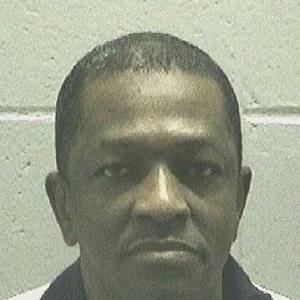In response to the executions of Troy Davis and Lawrence Brewer on September 21, over 150 Catholic theologians have signed a statement calling for the abolition of the death penalty in United States. The theologians stated: “[W]e oppose the death penalty, whether a person on death row is guilty or innocent, on both theological and practical grounds. While we especially deplore and lament the killing of Troy Davis, we also decry the death sentences of the more than 3,200 inmates on death row and the 1,268 executions since the death penalty was reinstated by the Supreme Court in 1976. We urge our nation to abolish capital punishment, and we also implore our churches to work unwaveringly to end it as well as all other threats to human life and dignity.” The statement cited former Supreme Court Justice William Brennan, who wrote, “The death penalty is imposed not only in a freakish and discriminatory manner, but also in some cases upon defendants who are innocent.” The theologians also pointed to studies showing racial and economic bias in the death penalty system and to past statements from the U.S. Council of Catholic Bishops and the Pope. Read full statement below.
A Catholic Call to Abolish the Death Penalty
There were two state-sanctioned executions in the United States on September 21, 2011. In Georgia, Troy Anthony Davis, an African American man, was put to death for the 1989 murder of Savannah police officer Mark MacPhail. In Texas, Lawrence Brewer, a white supremacist, was executed for his participation in the racist hate crime dragging murder of James Byrd in Jasper in 1998. As theologians, scholars, and social justice advocates who participate in the public discussion of Catholic theology, we protest the state-sanctioned killings of both of these men, and we call for the abolition of the death penalty in the US.
Davis’ execution is particularly troubling for it shines a stark light upon many longstanding concerns about capital punishment in the US. We mourn the death of Officer MacPhail and express our deepest sympathies to his family for their tragic loss. However, we believe that a grave miscarriage of justice took place with Davis’ execution. As many legal experts have pointed out, including former FBI Director and federal judge and prosecutor William S. Sessions, serious doubt remains about Davis’ guilt. Until his last breath he maintained his innocence. The failure of the Georgia Board of Pardons and Paroles, a Federal Appeals Judge, the Georgia Supreme Court, and the U.S. Supreme Court to grant Davis a new trial reveals a deeply flawed justice system. We therefore call upon lawmakers and President Obama to immediately repeal the Antiterrorism and Effective Death Penalty Act, which created the legal conditions for executing a man whose guilt was not established beyond reasonable doubt.
Even those who do not share our faith convictions ought to recognize, as Justice William J. Brennan put it, “the death penalty is imposed not only in a freakish and discriminatory manner, but also in some cases upon defendants who are innocent.” The horrific legacy of lynching in the US casts its evil shadow over current application of the death penalty. Studies have shown that black defendants are more likely to receive the death penalty. In many states with capital punishment, defendants are from 3 to 5 times more likely to be executed if their victim was white. In states that retain the death penalty, 98 percent of district attorneys are white and only 1 percent are black. Execution is also irrevocable, and innocent people have likely been victims of it. Since 1973, 138 persons have been exonerated from death row, most of whom were people of color and economically poor.
The US Conference of Catholic Bishops stated that “the sanction of death, when it is not necessary to protect society, violates respect for human life and dignity…Its application is deeply flawed and can be irreversibly wrong, is prone to errors, and is biased by factors such as race, the quality of legal representation, and where the crime was committed. We have other ways to punish criminals and protect society.” In earlier eras, Roman Catholic tradition acknowledged the necessity of capital punishment, in rare cases, to protect citizens from threats to the common good. In recent times, with more secure prison facilities that give us the means to offer such protection without executions, our church leaders have affirmed the need to eradicate the death penalty.
There are, moreover, theological reasons for this stance, and here we speak especially to our sisters and brothers in faith. In calling for the abolition of the “cruel and unnecessary” death penalty, Blessed Pope John Paul II argued that “[t]he new evangelization calls for followers of Christ who are unconditionally pro-life: who will proclaim, celebrate, and serve the Gospel of life in every situation. A sign of hope is the increasing recognition that the dignity of human life must never be taken away, even in the case of someone who has done great evil.” Our theological tradition recalls that our Lord Jesus Christ was unjustly and brutally nailed to a cross to die. The great 20th century theologian Karl Barth put the matter this way: “Now that Jesus Christ has been nailed to the cross for the sins of the world, how can we still use the thought of expiation to establish the death penalty?” The Eucharistic celebration calls Catholics to remember all crucified people, including the legacy of lynching, in light of the life, ministry, death, and resurrection of Jesus Christ. His Gospel message of forgiveness and love of enemies presents a difficult challenge, especially to those who have lost loved ones at the hands of a murderer. Yet, the Gospel teaches us how to become fully human: love, not hatred and revenge, liberates us. We need to forgive and love both in fidelity to the Gospel and for our own well-being. The experience of groups like Murder Victims’ Families for Human Rights, who advocate against the death penalty, attests to this.
Therefore, in concert with our recent popes and bishops, we oppose the death penalty, whether a person on death row is guilty or innocent, on both theological and practical grounds. While we especially deplore and lament the killing of Troy Davis, we also decry the death sentences of the more than 3,200 inmates on death row and the 1,268 executions since the death penalty was reinstated by the Supreme Court in 1976. We urge our nation to abolish capital punishment, and we also implore our churches to work unwaveringly to end it as well as all other threats to human life and dignity.
(J. McElwee, “Over 150 theologians call for abolition of death penalty,” National Catholic Reporter, September 27, 2011; T. Winright, “A Catholic Call to Abolish the Death Penalty,” September 27, 2011). See Religion and New Voices.


